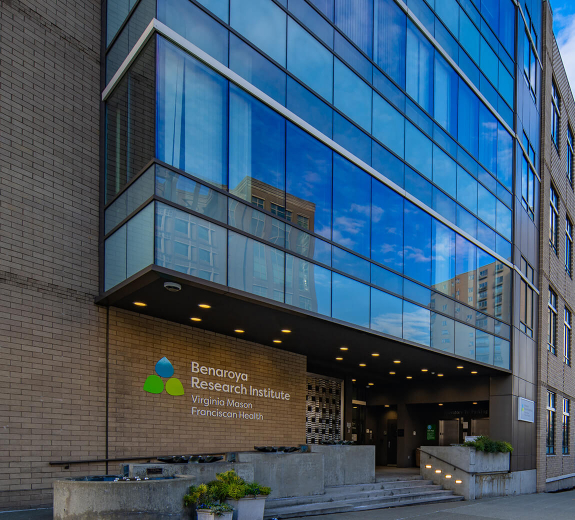The National Heart, Lung and Blood Institute at the National Institutes of Health has awarded $10.2 million over five years to a bioengineering research partnership at the University of Washington devoted to heart muscle regeneration through tissue engineering and embryonic stem cell research.
The award is the second such five-year grant in this amount that the research team has received. The partnership is led by Dr. Buddy Ratner, director of UW Engineered Biomaterials, Department of Bioengineering, and Dr. Chuck Murry, professor of Pathology and co-director of the Institute for Stem Cell and Regenerative Medicine at the UW, and managed by Dr. Kip Hauch, scientific coordinator, Department of Bioengineering. Dr. Thomas Wight and Dr. Margaret Allen of the Hope Heart Research Program at Benaroya Research Institute at Virginia Mason (BRI) will also direct aspects of the research project.
Known as the BEAT (Bioengineered Allogeneic Tissue) partnership, the interdisciplinary UW team is composed of chemists, bioengineers, biochemists, cell biologists, pathologists, cardiologists and cardiac surgeons working together to develop a new approach to treat myocardial infarction, or heart attack. The new therapy is a comprehensive approach to heart muscle repair that will involve a combination of molecular medicine, cell therapy, and new concepts in tissue engineering.
"Stem cell research holds promise because it offers the opportunity to rebuild damaged tissues from component parts," Murry said. His lab has grown new cardiac tissue in mice and rats by implanting heart muscle cells grown from stem cells.
The team will use tissue engineering methods to create miniature units of living heart muscle, which will be injected into the damaged heart wall to promote remuscularization, stimulate new blood vessel development, and minimize scar tissue formation. The researchers predict this approach will help restore contractile function in the heart. They also will develop methods to pre-treat the damaged heart muscle to improve survival of the implanted tissue and help the repair process. In addition, bioengineers will develop new medical devices to inject the engineered cardiac muscle and will test the success of their therapy in system models.
"We are working to provide a proper environment to grow and differentiate these cells which will help turn them into new cardiac muscle tissue. We have a novel means to do this by modifying the extracellular matrix that surrounds the cells," Dr. Wight said. "This grant represents a wonderful opportunity for scientists with different areas of expertise to collaborate and attack this problem."



